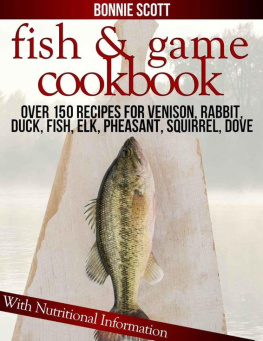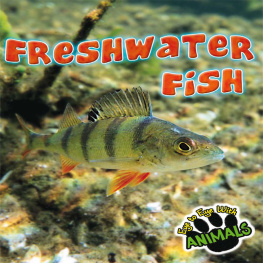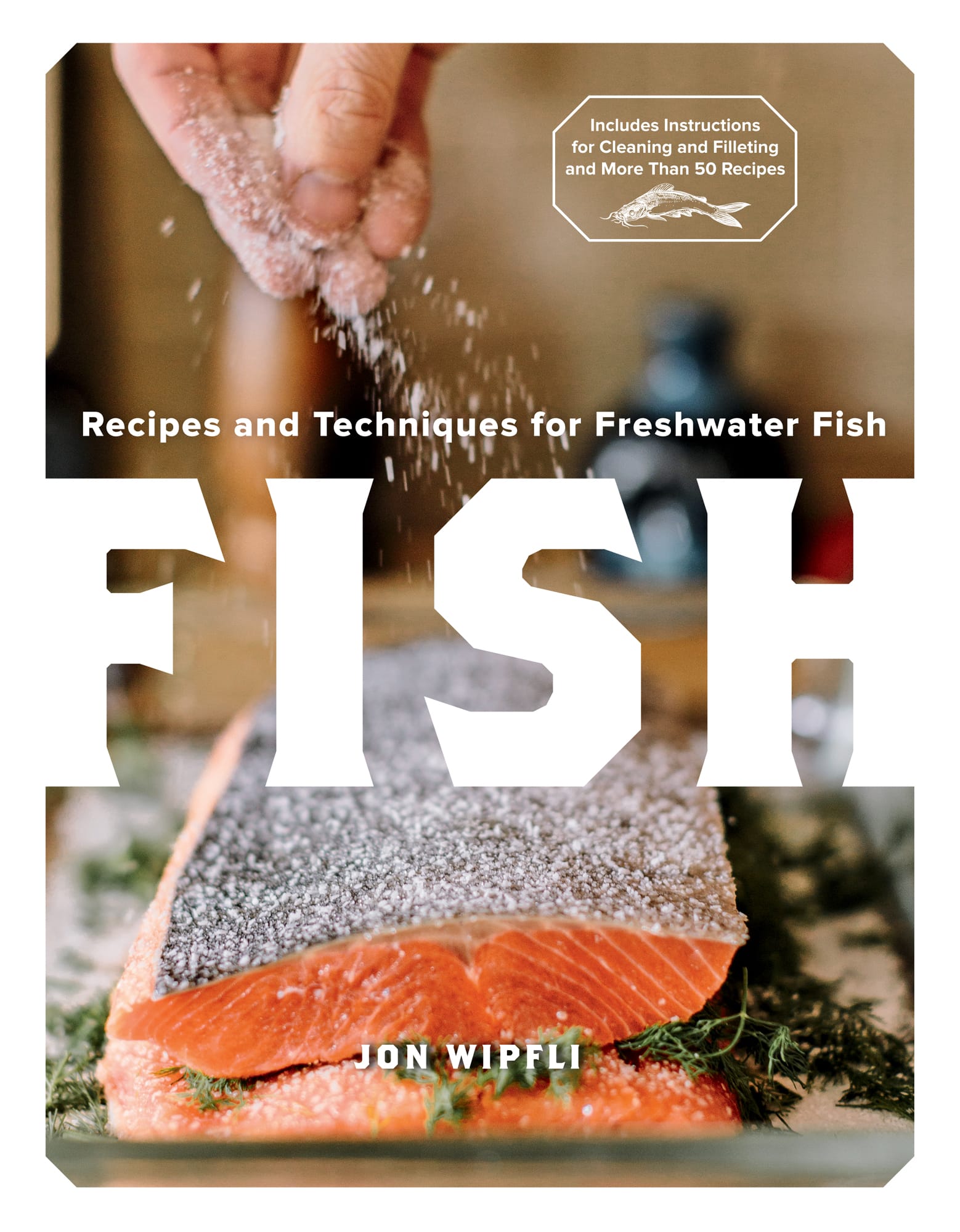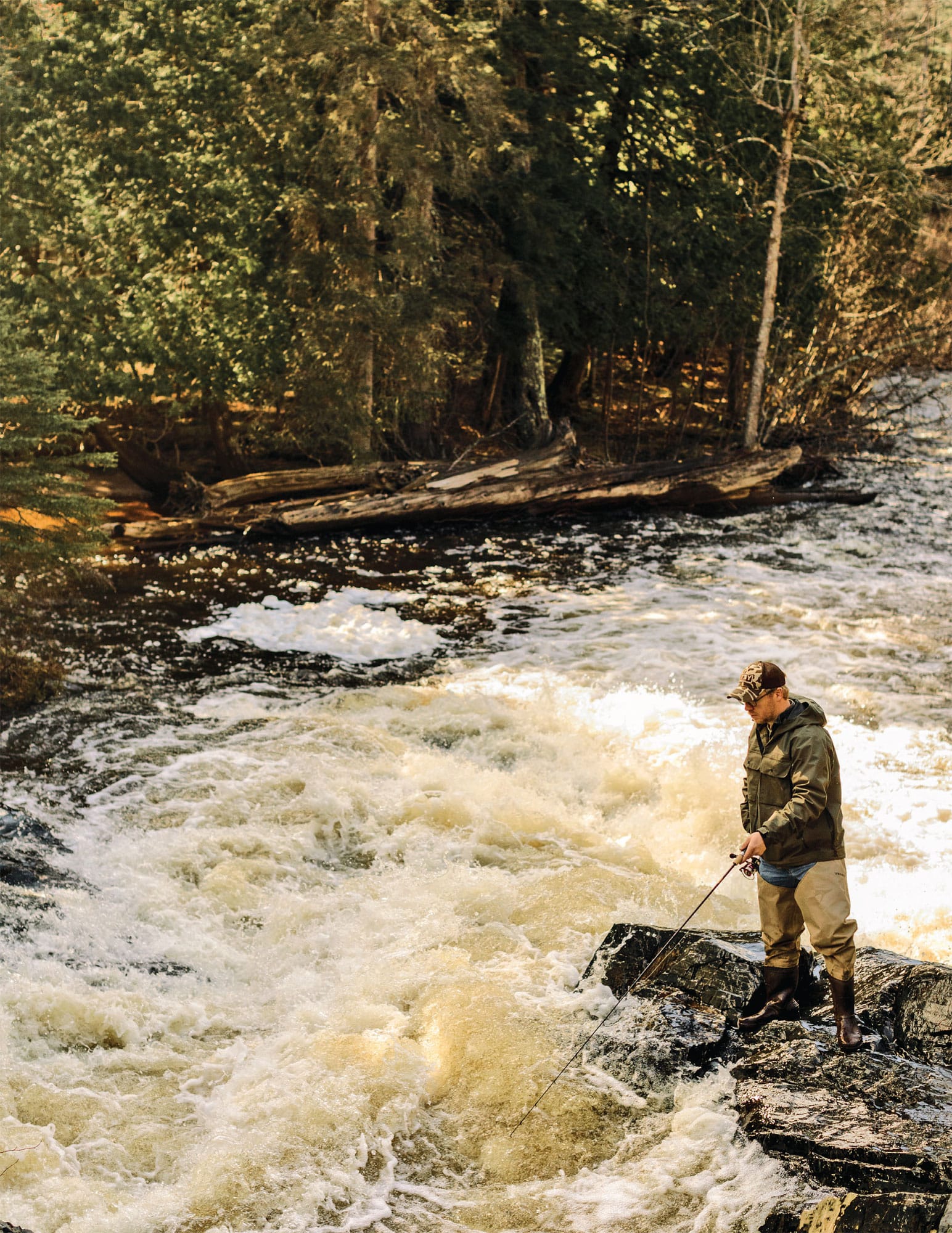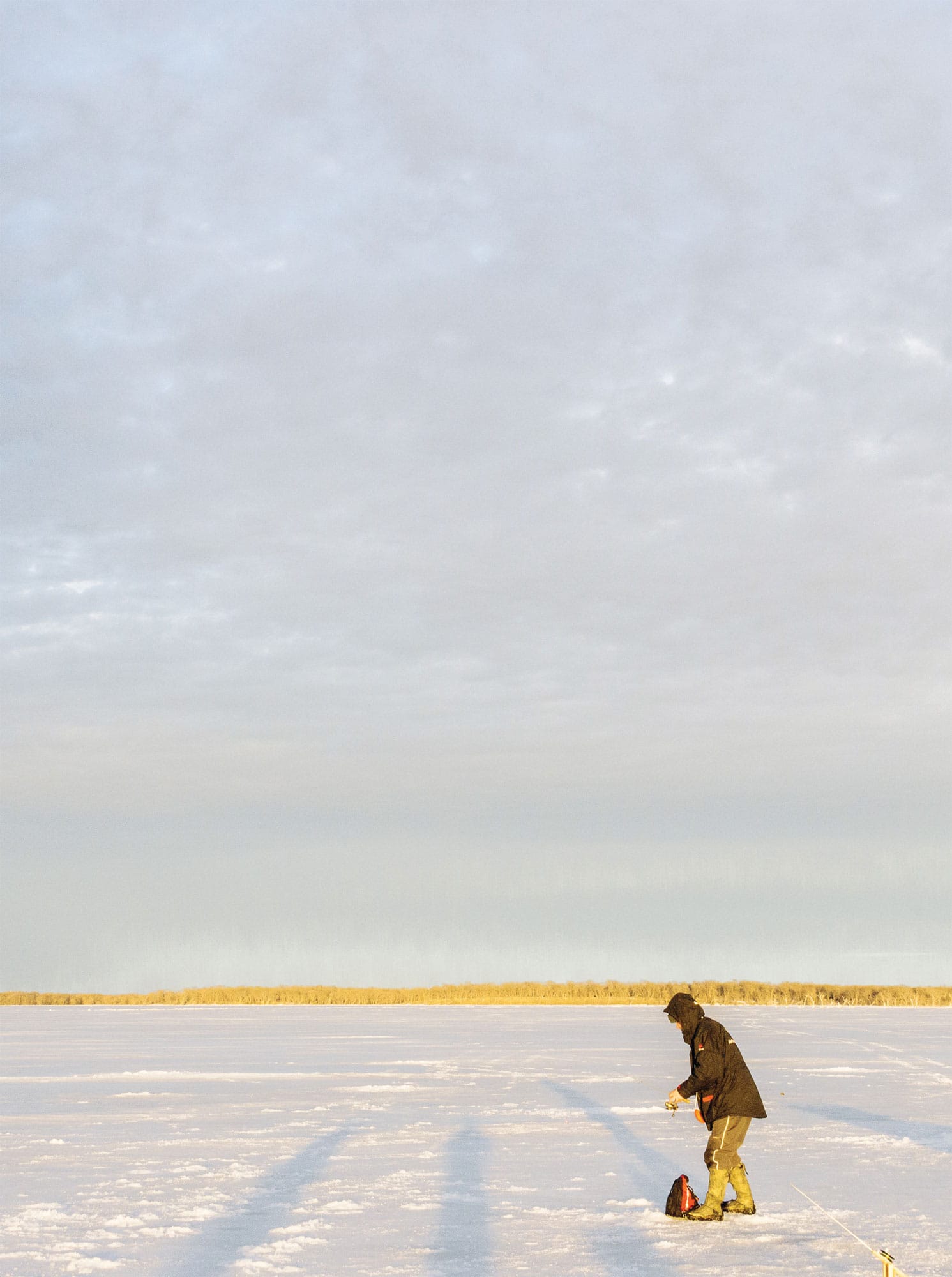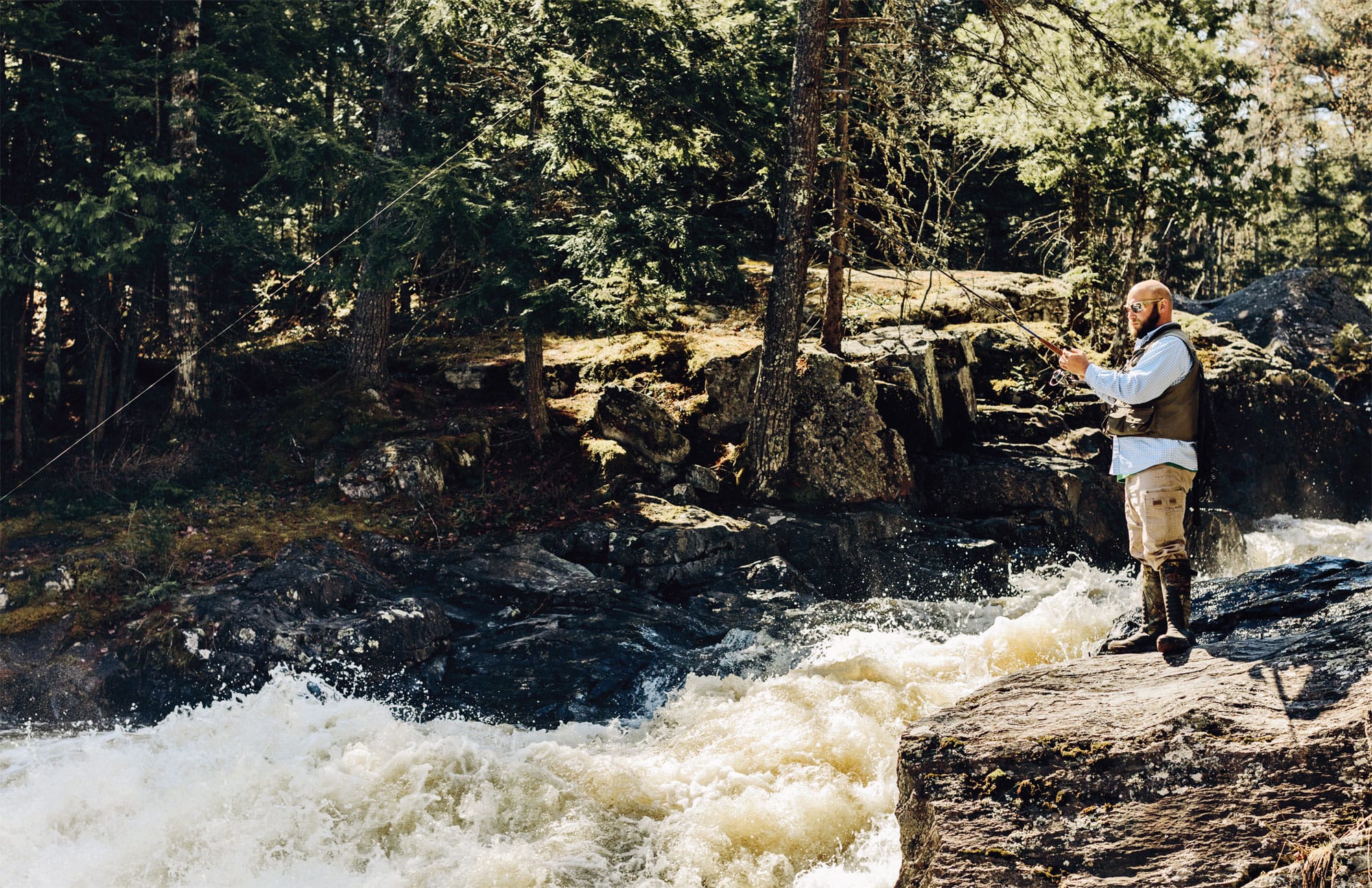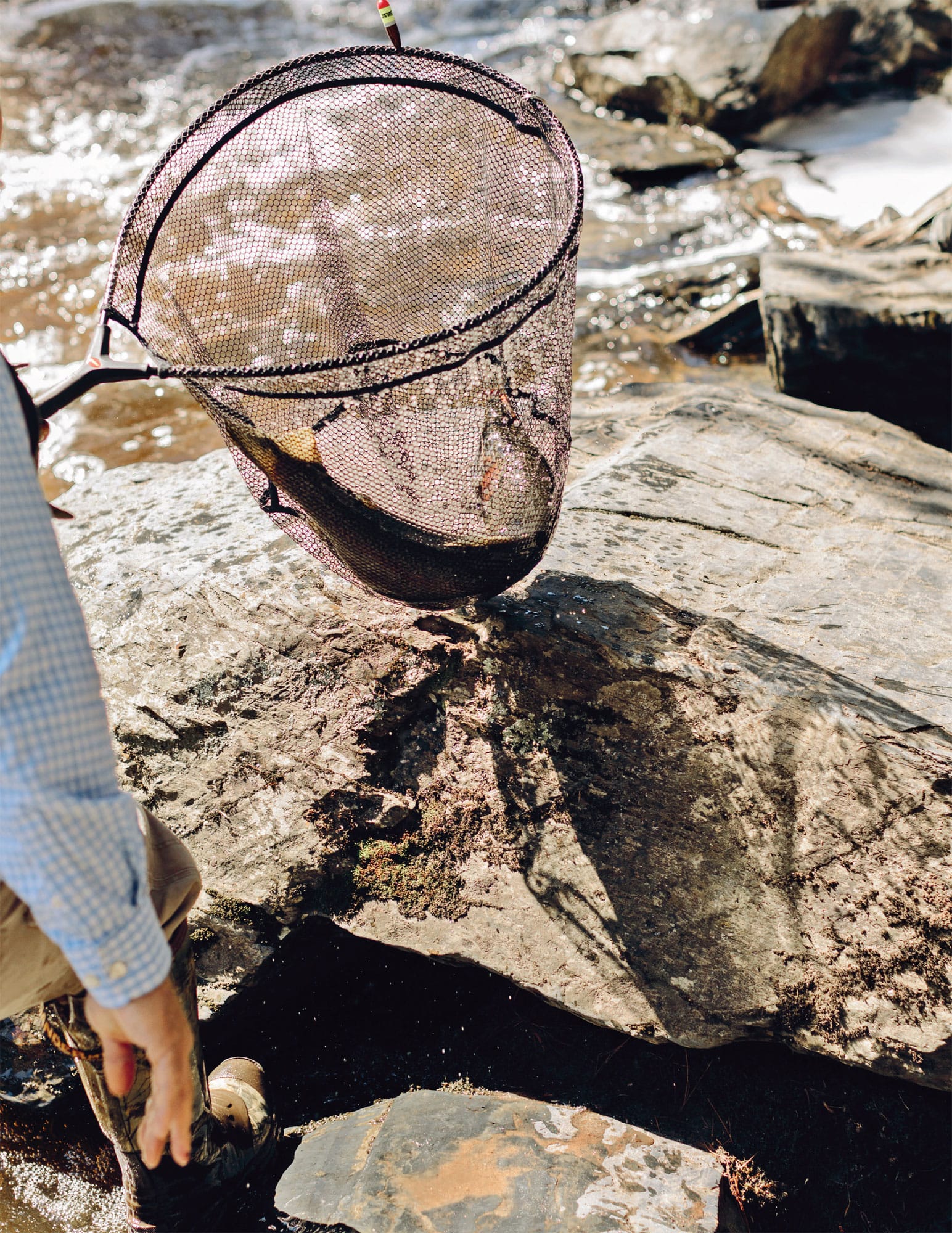FISH
Recipes and Techniques for Freshwater Fish
JON WIPFLI

INTRODUCTION
In this book, I cover multiple species of fish, ranging everywhere from bluegill to muskie, but could not reasonably cover every species of landlocked fish. For the purpose of functionality I cover the species of which I have witnessed the most consumption. There is a plethora of species I would have liked to cover and, with any luck, those species will be covered in a future book.
My goal in writing this book was to create recipes that can be made by chefs of any level while incorporating various techniques and ingredients that may be unfamiliar to some. Beyond that, I hope it creates an increased interest in obtaining your own protein and getting outdoors and fishing! I would love to hear from readers about what should be included in future editions!
I hope this book is helpful to you. If you have questions about the book or need help navigating a recipe, please reach out to or find me on Instagram @theminnesotaspoon and Ill do my best to help.
To research and write this book, I had to do quite a bit of fishing. This went far beyond solo trips. I was lucky enough to connect with some incredible fishermen and learn new fishing techniques along the way. We fished for steelhead and whitefish in Michigan, lake trout on Lake Superior, muskie and walleye in Wisconsin, and made it to the Dakotas for some ice fishing. It was eye-opening to see how different people specialize in one style of fishingand the work, time, and money they put into it.
To people who do this daily, it seems like simple work, but for an outsider looking in, its outstanding. The knowledge I took away from these fishermen on fish habitat, habits, and cycles was astounding. For example, I watched an expert fisherman navigate the endless waters of Lake Superior knowing exactly where specific lake-bottom terrains appeared and observed another knowing exactly which night the herring run would occur based on when the snow melts. This is knowledge gained slowly over years of persistence mixed with trial and error, all while typically not being able to see the subject until it breaks the plane of the water. Theres an underappreciated wealth of knowledge these individuals carry, and I have an immense respect for them.
I grew up fishing the waters of northern Wisconsin, never taking it too seriously. As a kid and young adult, my friends, family, and I would often catch walleye, gill, crappie, bass, and northern pike and walleye pike near our family cabin. In my twenties I moved to Montana and found an immense amount of pleasure in learning to fly-fish its massive rivers and the beautiful lakes I found nestled high in the mountains. In my late twenties I caught the muskie bug after my close circle of hunting friends introduced me to the sport. Again, I was lucky enough to spend time in boats with folks more knowledgeable than I, chasing monster muskies and occasionally hook into one myself.
The more time we spent in boats not catching muskies (so, about 98 percent of the time), the more I learned that success when fishing isnt measured by fish caught, follows, or inches measured. Its all about getting outside, drinking some beers with friends, and learning about whats happening in the natural world that surrounds us. No matter your skill level, theres an easy way to get out and sink a line into the water, and I cant think of a better way to spend a day.
BIG PICTURE
Beyond the sporting aspect of it, lake and river fishing is generally a sustainable and affordable way to obtain food. Fish management and stocking, for the most part, is well regulated and well done. Dollars spent for fishing licenses provide countless jobs and help protect our right to use these lands. Personally, its the best money I spend every year. If you enjoy the privilege of being able to use public lands as much as I do, continue to buy those licenses, bring your friends out on adventures, and find other ways to support public lands.
All this said, this book is a cookbook, not a fishing book. I am not a fish biologist nor an expert fisherman. Fishing is an activity in which Ive found meaning and pleasure over the course of my life, but I am in no way an expert resource on the subject. My specialty lies in cooking, and I find it very satisfying, on many levels, to expertly prepare food Ive killed. As always, be mindful of what you take and how you take it. Always follow all applicable laws and regulations. And, if possible, find out what condition the lake is in and if it has a healthy and robust fish population.
NOTE
Its also good to keep in mind that eating any large predatory fish comes with some health risks, mostly stemming from mercury content and other containments in the waters. They should not be eaten in large quantities or fed to children, pregnant women, or the elderly. If you do decide to catch and keep one, please do due diligence on the fish, the fishing habitat, and any and all health risks associated with it.
EATING
Wild game cookbooks can be challenging to organize because more than one fish or piece of game can work for many recipes. Generally speaking, I think people with a freezer full of fish will look for some flavor combinations that interest them and go with whatevers just been caught (or is in the freezer). For example, you can substitute perch for crappie in the without any real effect on the quality of the dishand you can find examples like that across the entire book. Grouping recipes into substitutable categories of fish reflects that formatting. Fish that I believe can be easily substituted for another find their way into the same groups, so feel free to substitute within those categories with minimal risk to the end results. But even that is not a hard rule, as you can move different species around to various recipes throughout the book once you learn the different characteristics of the fish.


